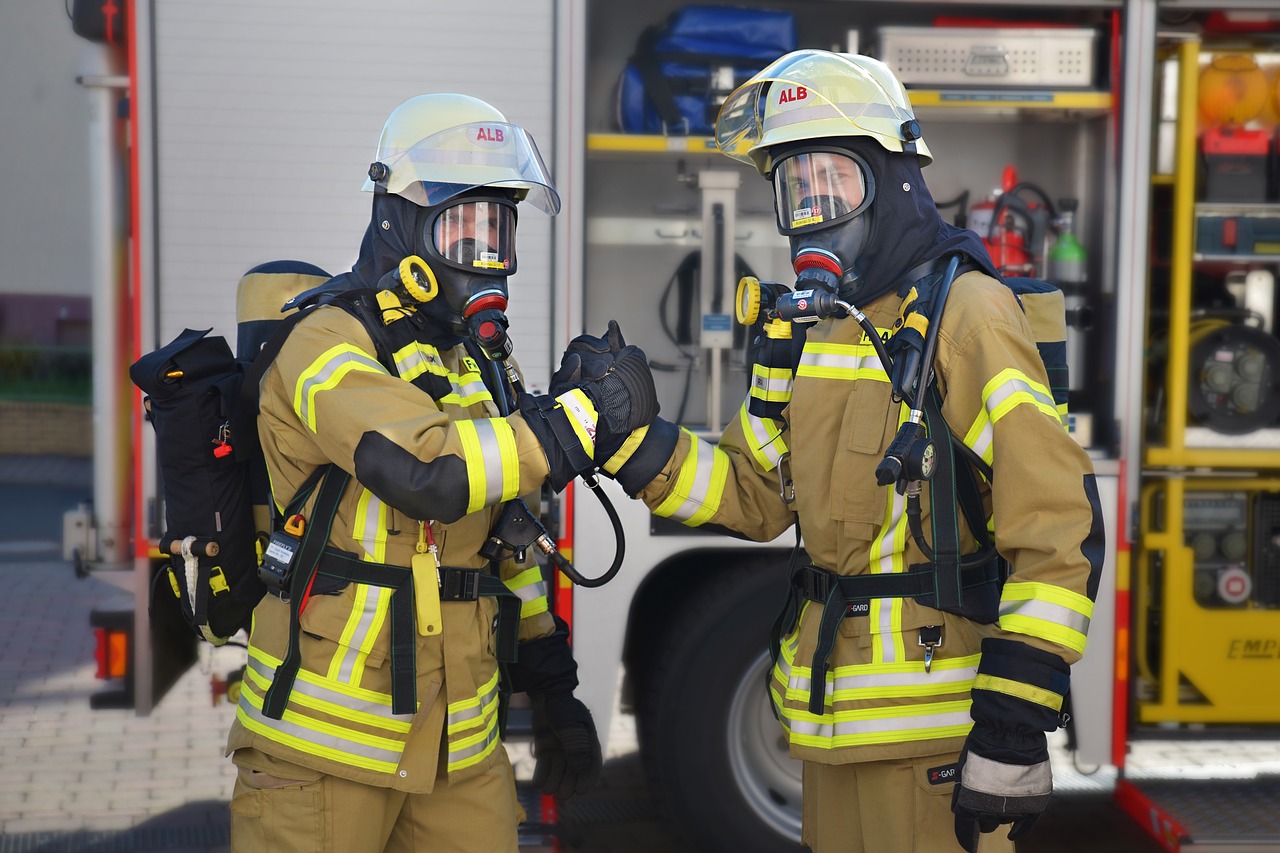In the context of decision-making in the Volunteer Fire Department, ensuring ethical practices is paramount for maintaining trust, integrity, and professionalism within the organization. With diverse challenges and high-stakes situations, it is crucial to have a clear set of guidelines to navigate the complexities of ethical dilemmas effectively. Here are 10 imperative tips to help firefighters make sound and ethical decisions in the line of duty.
Key Takeaways:
- Establish Clear Ethical Guidelines: Setting clear guidelines helps members understand the standards of behavior expected in the volunteer fire department.
- Promote Transparency and Accountability: Transparency builds trust among members and the community, while accountability ensures that everyone is held responsible for their actions.
- Provide Ongoing Training and Education: Continuous education on ethics and decision-making processes can help volunteers make informed choices in challenging situations.
Prioritize Safety Always
Personal Safety First
While volunteer firefighters are dedicated to serving their communities, personal safety should always be the top priority. An important aspect of ethical decision-making in the fire department is ensuring that all members prioritize their safety above all else. This includes following proper safety protocols, using protective gear at all times, and staying current on training to handle potential risks effectively.
Public Protection Priority
You’ll find that in the volunteer fire department, the safety and protection of the public should always be the primary focus. This means responding promptly to emergencies, coordinating effectively with other emergency services, and making decisions that prioritize the well-being of those who rely on the fire department for help. Upholding this standard ensures that the community’s trust in the department remains strong.
Always strive to strike a balance between ensuring personal safety and prioritizing public protection. This balance will guarantee that ethical decision-making remains at the forefront of every action taken within the volunteer fire department.
Educate on Ethics
Mandatory ethics training
Now, one of the crucial steps in ensuring ethical decision-making within the volunteer fire department is to provide mandatory ethics training to all members. This training should cover important topics such as ethical dilemmas commonly faced in the field, the department’s code of conduct, and the consequences of unethical behavior. By ensuring that all members are equipped with the knowledge and understanding of ethical standards, you can create a more ethical and responsible team.
Promote continuous learning
If you want to foster a culture of ethical decision-making within the volunteer fire department, it is important to promote continuous learning opportunities for all members. This can include encouraging participation in ethics workshops, seminars, and online courses. By continuously expanding their knowledge and understanding of ethics, firefighters can stay updated on the latest ethical standards and best practices in the field.
Educate your team on the importance of staying informed about ethical guidelines and encourage them to seek out opportunities for further education and training in ethics. By investing in continuous learning, you not only enhance the ethical decision-making skills of your members but also cultivate a culture of integrity and accountability within the department.
Establish Clear Policies
Define ethical conduct
Clearly defining ethical conduct within the volunteer fire department is crucial for ensuring that all members understand the expectations of their behavior. This can include guidelines on honesty, integrity, confidentiality, and respect towards colleagues and the community.
Outline disciplinary actions
Define specific disciplinary actions that will be taken in response to violations of ethical conduct. Clearly lay out the consequences for infractions, whether they be verbal warnings, written reprimands, suspension, or removal from the department. Consistency in applying disciplinary actions is key to maintaining accountability and upholding ethical standards.
With a solid understanding of what constitutes ethical behavior and the consequences for violating these standards, members of the volunteer fire department can be confident in their decision-making processes and contribute to a positive and ethical organizational culture.
Encourage Transparency
Open communication channels
If the volunteer fire department values transparency, it is crucial to have open communication channels between all members. Encouraging firefighters to express their thoughts, ideas, and concerns freely fosters a culture of honesty and accountability. Regular meetings, suggestion boxes, or open-door policies can be effective ways to ensure that everyone has a voice in the decision-making process.
Document all decisions
Some of the most critical aspects of ensuring ethical decision-making in a volunteer fire department involve documenting all decisions made. Keeping detailed records of meetings, discussions, and the rationale behind each choice can provide clarity and accountability. This documentation not only serves as a reference point for future actions but also reinforces the importance of transparency within the organization.
Encourage a practice of recording minutes from meetings, documenting any conflicts of interest, and outlining the reasoning behind major decisions. By establishing a thorough documentation process, the volunteer fire department can uphold its commitment to transparency and ethical conduct.
Lead by Example
Leaders act ethically
For a volunteer fire department to function effectively and ethically, it is crucial that leaders set the standard for ethical behavior. Leaders must demonstrate integrity, honesty, and respect in all their actions and decisions, serving as role models for the rest of the team. By consistently acting in an ethical manner, leaders inspire trust and confidence among their peers and the community they serve.
Accountability at all levels
For a volunteer fire department to uphold ethical standards, accountability must be present at all levels of the organization. From the leadership team to individual volunteers, everyone must take responsibility for their actions and decisions. Accountability ensures that mistakes are acknowledged, lessons are learned, and trust is maintained within the department.
Accountability at all levels means that leaders must be willing to hold themselves and others accountable for their actions. It involves creating a culture where individuals feel comfortable admitting when they have made a mistake and taking steps to rectify the situation. By promoting a culture of accountability, a volunteer fire department can foster a sense of responsibility and integrity among its members.
Foster an Ethical Culture
Reward ethical behavior
Not only is it important to have clear policies and guidelines in place to address ethical behavior in the volunteer fire department, but it is also crucial to actively recognize and reward those members who consistently display ethical conduct. By celebrating and incentivizing ethical behavior, you create a culture where doing the right thing is not only expected but also valued and appreciated by all.
Discourage misconduct actively
Clearly communicate to all members that misconduct, unethical behavior, or violations of the department’s code of conduct will not be tolerated. Actively discourage any actions that go against the department’s values and principles. This can include implementing a reporting system for misconduct, conducting regular training on ethics, and promptly addressing any issues that arise.
Ethical leadership starts with fostering an environment where ethical conduct is the norm. By rewarding ethical behavior and actively discouraging misconduct, you set the expectation that all members of the volunteer fire department must adhere to the highest standards of integrity and honesty in their actions and decisions.
Maintain Impartiality
Avoid Favoritism
While it may be tempting to show favoritism towards certain members or friends within the volunteer fire department, it is crucial to resist this urge. Making decisions based on personal relationships rather than qualifications or merit can harm the overall integrity and effectiveness of the department. Everyone should be held to the same standards and treated fairly in all aspects of volunteer work.
Equal Treatment for All
While it is necessary to avoid favoritism, it is equally important to ensure that all members are treated equally and with respect. Ensuring that there is no discrimination based on factors such as gender, race, or seniority is key to maintaining a harmonious and inclusive environment within the volunteer fire department.
Maintain a transparent system for assigning duties, providing training opportunities, and recognizing achievements to demonstrate that every member is valued and offered the same chances for growth and development.
Respect Confidentiality
Protect sensitive information
Once again, maintaining confidentiality is crucial in the volunteer fire department. Protecting sensitive information about incidents, individuals, or operations is a core ethical responsibility. Ensure that all members understand the importance of keeping such details within the department and not sharing them outside without proper authorization.
Ensure privacy standards
Clearly, ensuring privacy standards is imperative to uphold the trust and integrity of the volunteer fire department. You must establish and enforce strict guidelines for handling personal information, such as medical records or contact details, with the utmost care to prevent breaches. This includes restricting access to confidential files and ensuring that only authorized personnel can retrieve or share this data.
This also involves using secure communication channels and storage systems to safeguard sensitive information from unauthorized access or cyber threats. Regular training sessions on data protection protocols and privacy laws can further reinforce the importance of maintaining privacy standards among all members of the department.
Support Whistleblowers
Encourage reporting violations
To ensure ethical decision-making in the volunteer fire department, it is crucial to foster an environment where volunteers feel comfortable reporting any violations they witness. Clearly communicate to all members that reporting unethical behavior is not only encouraged but necessary to maintain the integrity of the organization. By encouraging transparency and accountability, you can create a culture that prioritizes ethical practices.
Protect against retaliation
You’ll want to establish clear policies and procedures that protect whistleblowers from any potential retaliation. For instance, guaranteeing confidentiality for those who report violations can help alleviate concerns about backlash. Additionally, it is important to have mechanisms in place to investigate any claims of retaliation promptly and fairly. By demonstrating a zero-tolerance policy for retaliation, you can create a safe space for volunteers to speak up without fear of consequences.
Review and Adjust
Regular policy assessments
Many volunteer fire departments have policies and procedures in place to guide ethical decision-making. It is crucial to regularly assess these policies to ensure they are up to date with current laws and best practices. Conduct regular reviews with a committee to identify any gaps or areas for improvement.
Implement improvement measures
If you identify areas for improvement during your policy assessments, it is important to implement measures to address them promptly. This may involve updating training programs, revising codes of conduct, or providing additional support to members. By taking proactive steps to enhance your ethical framework, you can prevent potential ethical dilemmas in the future.
Adjusting policies and procedures based on feedback and assessments is an important part of maintaining ethical standards within the volunteer fire department. By continuously reviewing and improving your practices, you demonstrate a commitment to ethical decision-making and ensure the trust and respect of your community.
To wrap up
With these considerations in mind, volunteer fire departments can ensure ethical decision-making is always at the forefront of their operations. By fostering a culture of transparency, training members on ethical standards, and prioritizing the well-being of all stakeholders, the department can build trust within the community and uphold its integrity. By implementing these 10 tips, volunteer fire departments can navigate ethical dilemmas with confidence and uphold the values that are important to serving their communities with honor and integrity.


